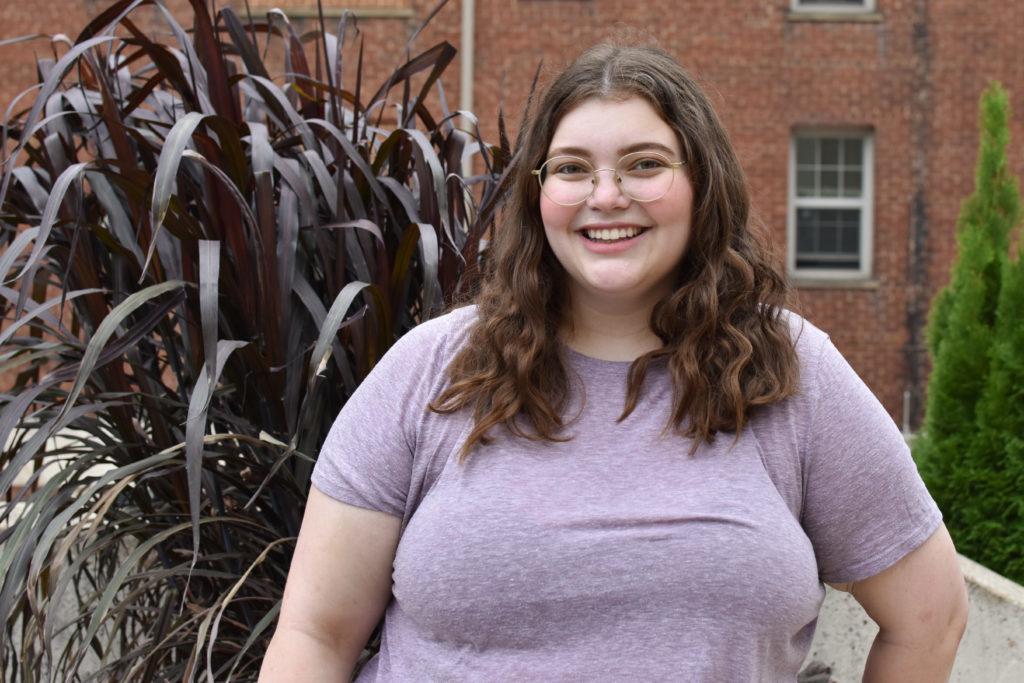A student-led organization that advocates for students with disabilities is pushing for more classroom and event accessibility and enhanced digital communication.
Members of the Disabled Students Collective are advocating for quiet spaces at all career networking events and improved communications accessibility, like adding alternative text captions to videos on University websites and in classrooms. Student leaders said instituting the changes will make GW’s campus more accessible for all students, which will help disabled students feel more included on campus.
AJ Link, the vice president of the Disabled Students Collective and the president of the Atypical Student Society – a support group for atypical law students and neurotypical allies – and a Student Association senator, said quiet spaces – rooms students can visit to “cool down” before returning to the main event – are a useful resource for atypical and neurotypical people alike.
“If you make the space open for everyone, then you’re going to bring more people into the space,” Link said. “It’s going to be more enjoyable.”
Link said he hopes to also institute quiet spaces at social events like Colonials Weekend, orientations, galas and sporting events.
“Hopefully we can expand that beyond just networking events to all social events or any kind of event where people could get overstimulated – there’s noise stimulation, light stimulation – just to have a place where atypical people can go to decompress,” Link said. “It’s good for neurotypical people who just want a quiet space for a second to cool down if they feel overwhelmed.”
Link said he has been in contact with officials in the Center for Career Services to create quiet spaces, but student leaders have “struggled” to implement the rooms across campus because career centers at each school are in charge of their own networking events.
He added that increasing communications accessibility on campus, like encouraging professors to use large font sizes and strong color contrast for slideshows, will help some students with disabilities feel more “comfortable” in the classroom.
“It’s a good recruitment tool – it shows you making steps to actually work on diversity,” Link said. “It’s not just a buzzword or catchphrase.”
Gabriela Rossner, the president of the Disabled Students Collective, said the group has worked with administrators in the Division of Operations, Office of Diversity, Equity and Inclusion and the Division of Safety and Security to fix “small things that will make big differences.” She said the group is taking steps to increase online accessibility, like adding alternative text and captions to all images featured on administrative websites.
The Department of Education’s Office for Civil Rights launched a federal probe into alleged disability discrimination at GW in April 2017. The department found that several GW web pages lack accommodations, like photo captions and strong color contrast, for deaf, hard of hearing and visually impaired individuals.
Officials said last January that monitoring digital accessibility issues like tab navigation, video captioning and photo captions is difficult because University websites and technology update frequently.
Rossner said some offices like the Office of Undergraduate Admissions have already taken steps to make their websites more accessible, like adding audio descriptions of the images posted on their website. She said the group is meeting with individual offices and departments on campus to make their websites accessible to all students.
“Just to have that as a University-wide policy and on all the websites could really step up accessibility for students,” Rossner said.
Rossner said the group is also working to grant more student organizations access services on CART – a translational app that adds captions to real-time conversations. She said student organizations must secure funding to provide CART services to members with disabilities.
“We know they struggle to pay for access to technology that meets all of their student’s needs,” Rossner said.
A senior student and member of the Disabled Students Collective, who spoke on the condition of anonymity because he did not wish to reveal that he has a disability, said instituting quiet spaces at career events will create a more “inclusive” environment for students with disabilities.
“It’s important to have quiet spaces as an overall policy because you never know who is disabled, because anyone can have an invisible disability,” he said in an email. “Career fairs, especially at GW, are always a hot mess, and it’s good to have a place to chill and relax.”
He added that normalizing communications accessibility policies can benefit disabled students who might feel uncomfortable disclosing their disability to their professors to receive necessary classroom accommodations.
“Professors are usually good with accommodating some disabilities, but only if you proactively identify yourself,” he said.





